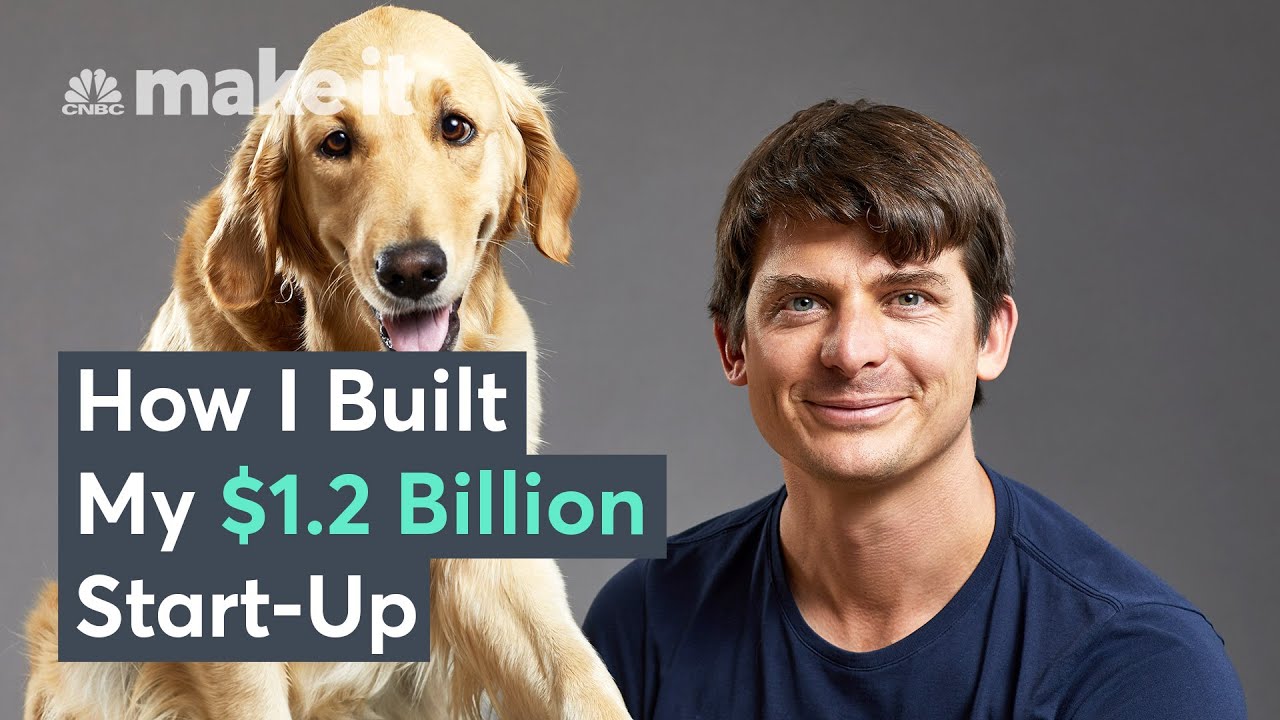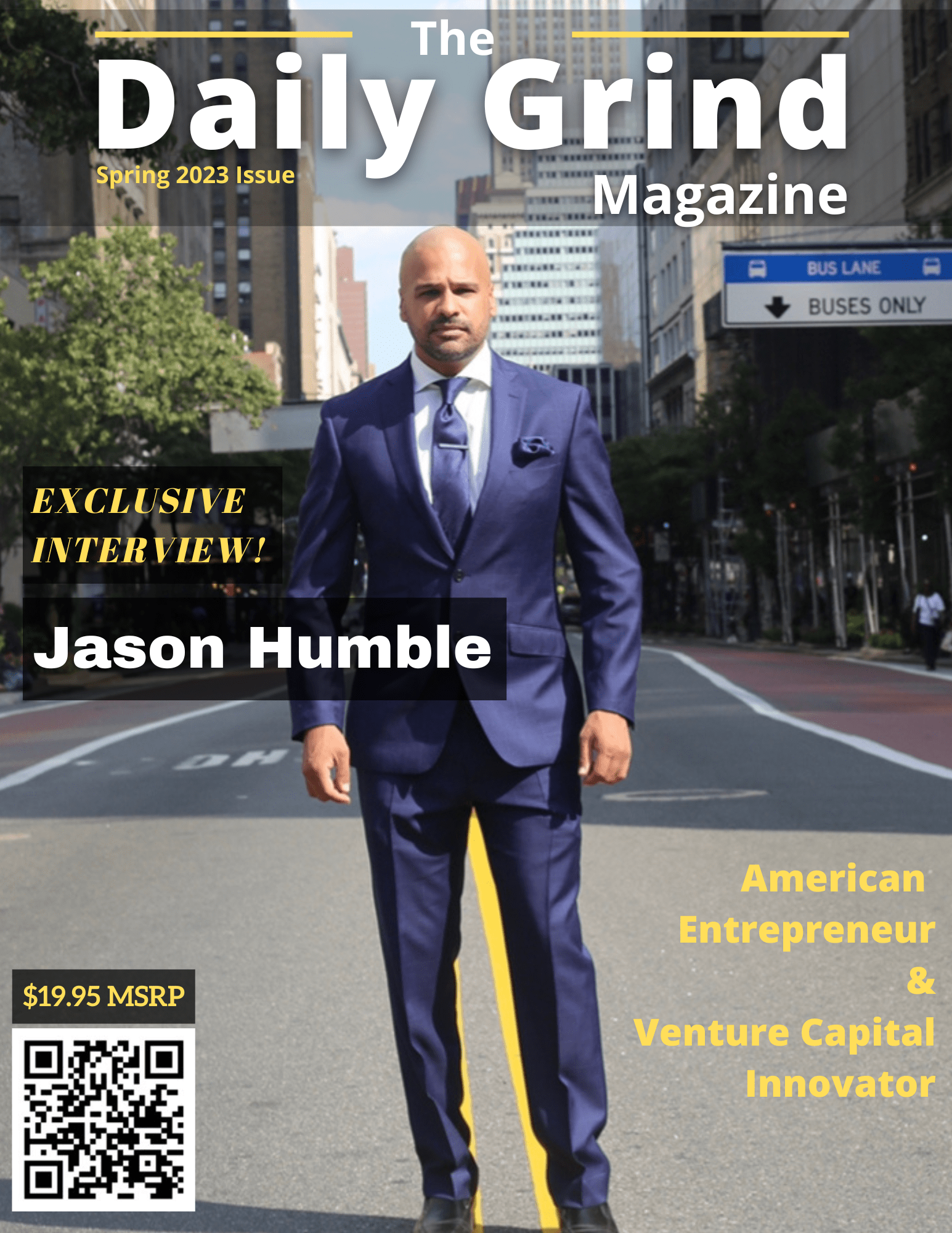This is a $4 million scrambled egg. Well, it's not just an egg. It's a vegan egg made from mung beans that, well, scrambled
just like an egg. Sounds good. Okay, well that's good. Wow. You kept a lot of that Alabama accent, huh? I try to retain a little bit of it. Josh Tetrick thought if we can make plant-based milks,
cheeses and butters, surely someone developed an egg Alternative. It sounds so simple. Apparently, it's anything but. Just so you know, because you can scramble something in the
lab doesn't mean necessarily you can scale it. There are three numbers to look out for in this story. $3,000. The amount he had in his savings when he launched
his startup. $500,000. His first outside investment. And $800 million. The total amount Eat Just has raised so far. Here's how Josh Tetrick went from crashing on his
girlfriend's couch to sitting atop a $1.2 billion startup Called Eat Just. For CNBC Make It, I'm Nate Skid. This is Founder Effect. Josh grew up in Alabama where football is religion and he
was dead set on going pro as a linebacker. You're in a culture where all that is supported, so I'm
going around telling people I'm going to be a professional Football player. And folks are egging it on a little bit. You know, they're encouraging it. Even though he graduated at the bottom of his class with a
2.1 GPA, he landed on the football team at West Virginia, Where he had a humbling experience. I realized that I probably wasn't going to be good enough to
play in the NFL because the other Players, many of them were better than me and they weren't
getting drafted to play in the NFL. Josh needed a new place to direct his energy, something he
could fully devote himself to. Something that could fill the void in his life left by
football. And I just decided, for lack of a better option, in the
meantime, it would be academics. With a new challenge to overcome, Josh raised his GPA to a
4.0 before transferring to Cornell in 2002. Like a lot of college students, he wanted to find a way to
give back. So he went to work for a nonprofit which brought him to
places like Liberia, Kenya, Nairobi and Cape Town. In fact, it was in Cape Town where he came across a book
that would change his life called, "Fortune At The Bottom Of
The Pyramid." What this book says is you think nonprofits
are the way to make change, But you're wrong. That capitalism is a system. It is a force. And yet can do a lot of wrong in the world. But if used correctly, it can do a lot of right in the
world. And it really opened up my eyes. So he moved back to the States and enrolled in law school at
the University of Michigan. And I was really soaking up a lot of these ideas around what
are models? What are businesses? What are ways to use the market to
solve urgent problems? So instead of paying attention to contract law class or
constitutional law. Now my mind was really rolling about these things. What does it look like? What does it look like to start a
company? But it was a childhood friend and devoted animal advocate
who pushed him to leverage his ambition for the greater Good. I've had a best friend named Josh Balk since I was 13
and he was always in my ear. Do you know about the food system? Do you know about what goes on your plate? He convinced him that egg-laying hens were some of the most
abused animals in the food system. Together, they came up with a simple question that would
help our feathered friends. Can a plant scramble like an egg? That sounds like a question you would ask your friends while
you're, like, smoking weed in the backyard. It happened, like, kind of take you into the conversation
where I would say, "Josh, all right. What is… What animal out there do you think needs the most
help?" And Josh would say, "Egg-lying hens." And I would say, "Tell me more." And he said, "Well, they're tens of billions of hens that
are laying eggs. There are over a trillion eggs are laid every single year. It's really challenging to replace that." And so remember, I'm coming from also this experience of
"Fortune At The Bottom Of The Pyramid." C.K. Prahalad saying that nonprofits aren't moving fast
enough trying to find my next version of football. And I'm like, "Well, tell me more about these egg-laying
hens." How much money do you want to put into this? How much do you have to to invest to start up? I got about $3,000 in my bank account. I'm sleeping on my ex-girlfriend's couch in LA. Her name is Jill. So our first headquarters was on her
6-foot couch in her
Studio apartment. She gave me a timetable and she said, "You got to figure
your s*** out for 6 months." Josh was buying plant and protein products from Target and
baking cupcakes and cookies with them. Nothing worked, let alone scrambled. If he was going to find a viable egg substitute, he needed
some cash. How did you get some money without a product? Got to talking to Josh again. And we… We thought about some of these early stage
investors that might be open to this. And I was able to get a meeting with Khosla Ventures, run by
a guy named Vinod Khosla and A guy named Samir Kaul. And I sat down with Samir. And I presented this idea and I'll pitch to you like I'm
talking to Samir. Over a trillion eggs are laid every single year around the
world by all these billions of chickens. It requires all this land and all this water. What would it look like if we found a way to do it much more
efficiently in a way that would taste better and a way that Would be more cost effective in a way that would be kinder
to animals? What if we could find a plant? A bean? A grain? Who knows? To do it better. And we could really build a company around
that. Khosla Ventures invested half a million dollars in the idea
and that was sufficient to get me Off Jill's couch. In early 2013, Josh rented a 3,500 square-foot space that
used to be a biker bar and got to Work. His first purchases were a ladder and an oven. He needed to find a plant with similar protein and fat
content as an egg. So he went on a very specific hiring spree. One of the most important things we had to realize is that
to figure out a way to make a plant from an Egg is going to require more than just food scientists. We also knew we needed chefs because there's something about
a chef. The the taste, the intuition that we felt were going to be
really important. But then we realized chefs and food scientists are not
sufficient. We need biochemists because there's something about how the
protein works. We need engineers because we have to figure out a way to
pull the protein from the bean or from the grain or whatever We find. So all of a sudden, you know, months into it, we
need four disciplines. Then we realized, well, we also need folks that are
crunching a lot of this data.
Josh hired from 15 different scientific disciplines. He stole workers from Kellogg's and Unilever, poached
engineers from Bay Area biotech startups, and lifted chefs From Michelin-starred restaurants. I know those aren't cheap positions, so I'm guessing that
$500,000 went pretty quickly. But did it get you to a proof of concept? How long did it take you to land on something that you guys
were like eating and feeling like it was getting close? So I thought it would take us about a year, year and a half
to find something That scrambled like an egg. That's what I thought. And it really wasn't until 4 or 5
years later where we were Able to really nail it. Texture of an egg in the pan. Still tasted very beany, but you would look at it and be
like, "Alright, there's something here." So you're not even talking about, like, we got a great
tasting, great textured egg. You're like, "No, no, no. You don't understand. We just finally scrambled the egg. We haven't worked on the flavor yet?" Oh, yeah. I'm excited about the scramble. That's right. One of the most important moments in history
of the company was the first time a plant scrambled. How much do you think you spent to get to that point where
you had a plant that scrambled? Probably about $3 to $4 million. Josh was about to learn the biggest lesson of his
entrepreneurial life and it cost him millions of dollars. Not understanding how this works. I see that and think, "Oh, we're going to be launching this
in 6 months now. Like, "We got this. We'll figure it out. Yeah, it tastes like a bean. We'll work on that. But we should get ready to launch
this." And that end up being, being wrong. Just because you can do something in the lab does not at all
mean you can do something at commercial scale. It wasn't until late 2018 that we launched Just Egg in U.S. Retail. How are you getting more investment at this time to
kind of keep this going? We raised capital from a firm called Horizons Ventures. We raised another round from Khosla Ventures, from Founders
Fund, from a group called the Collaborative Fund. And it was not different. It was the same thing. It's taking us longer than we need
to.
We want to keep pushing to be able to do it. And we're at a stage now, we've raised north of $700
million. Today, Just Egg is in tens of thousands of stores in almost
every major retailer, including Walmart, Costco and Whole Foods. All in, they've sold some 250 million eggs, but it
hasn't always been easy. In 2017, Josh had to let go of his entire board. There's a feeling now like, "Are we doing something wrong?" Right? Is the kind of team that we have. The kind of folks around us. Are we set up in a way that really optimize what we're
trying to do? So we sat down together as a, as a board. It was a really hard conversation. It was a rough time and decided we got to essentially start
how we're doing this over. So we… There was a period of time where I was the sole
member of the board. I would imagine that the pressure of not putting a product
out would have weighed heavily on you. Every month, every year, every email that you got that was
like, "Hey, just checking in to see your progress." First and foremost, it wasn't it just wasn't good
internally. The company started to make an egg from a plant and happen
that we eventually called Just Egg, But we just couldn't figure out how to do it. The vast majority of my energy was, what can we do today to
increase the probability that it will happen? In 2017, the company began pursuing a line of cultivated
meat. Currently, Good Meat is sold in Singapore, but the company
plans to begin production in the United States in early 2023. Don't sleep on Good Meat. We've become the first company to ever receive regulatory
approval and to go on and sell Real meat without the need to slaughter an animal. For Josh, he says the difficulty of scaling his business is
challenging him in the best possible way. I just wanted more of my energy, you know. I missed plenty of tackles playing football, right? But when you miss a tackle on the running back, you know,
gallops on for 40 yards. The fewer seconds you can spent, spend in a moment of regret
and the quicker you can just say, "Alright, like, next Play." The more effective you're going to be.





